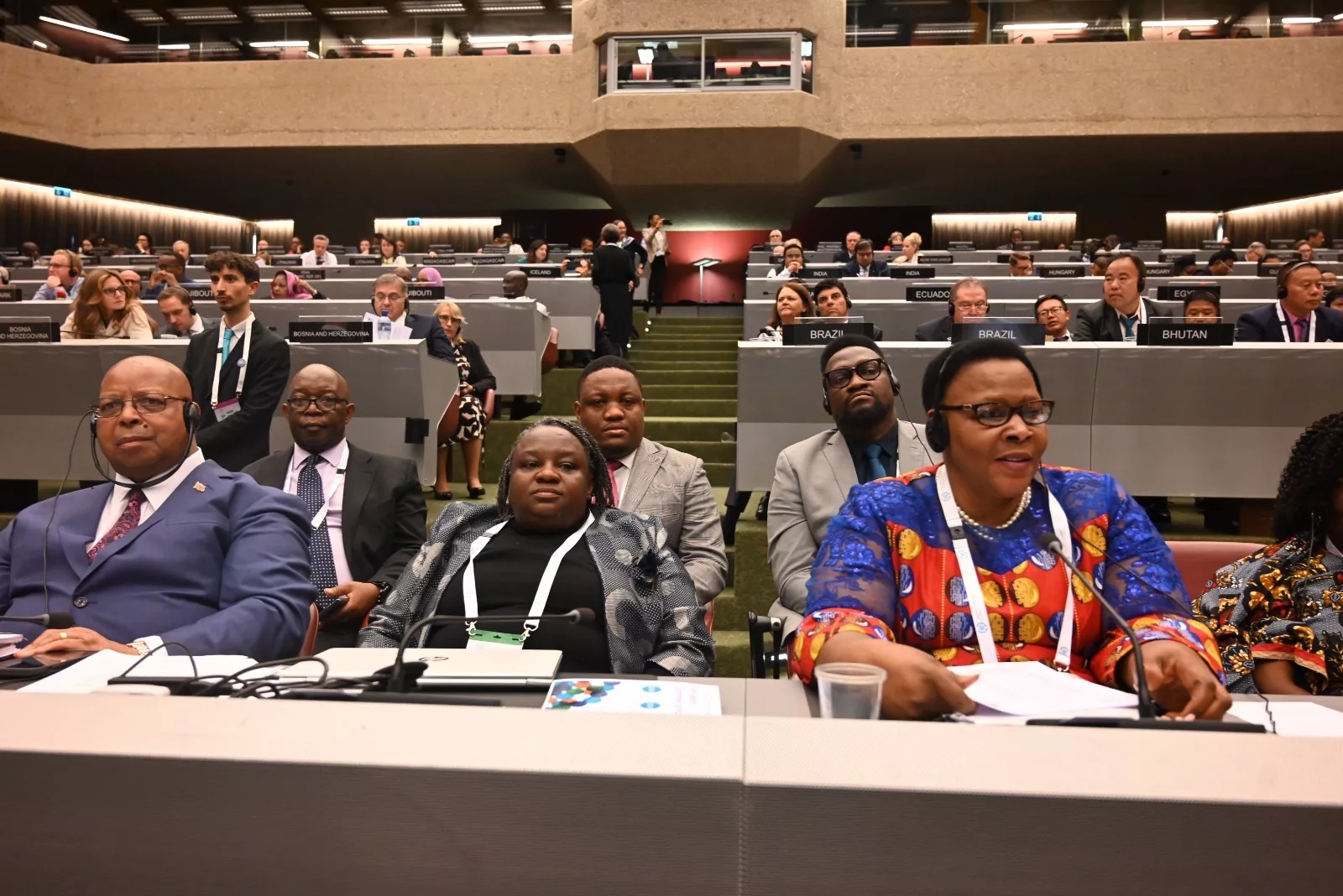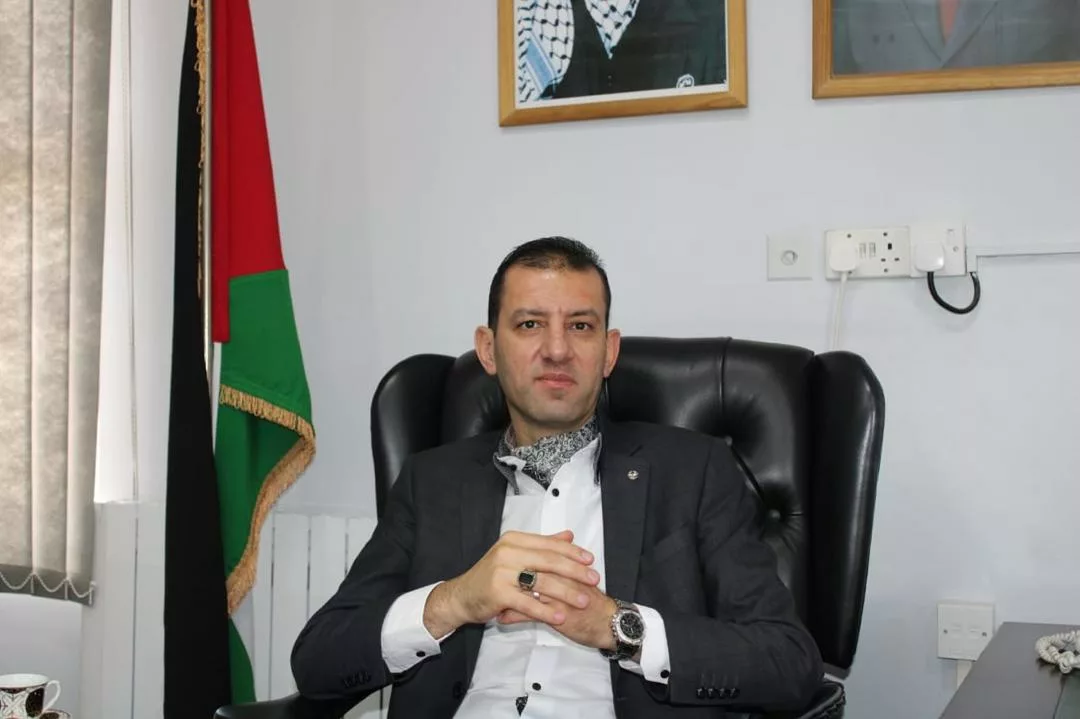|
Getting your Trinity Audio player ready...
|
The curtain came down on the 149th Assembly of the Inter-Parliamentary Union (IPU) and related Meetings held in Geneva, Switzerland, from 12th to 17th October 2024. Running under the overarching theme: ‘HARNESSING SCIENCE, TECHNOLOGY, AND INNOVATION (STI) FOR A MORE PEACEFUL AND SUSTAINABLE FUTURE,” the 149th Assembly considered and deliberated on parliamentary action to maximize the benefits as well as militate against the risks of new technologies with a particular focus on the use of Artificial Intelligence (AI).
The Assembly which was characterized by candid and robust deliberations, was a resounding success resulting in the adoption of key resolutions at its conclusion. Zimbabwe was represented by Presiding Officers, Speaker of Parliament, Hon Advocate J.F.N Mudenda and President of the Senate, Hon M.M Chinomona together with Members of Parliament (MPs) seconded to the IPU, namely; Hon Chief Mtshane Khumalo, Hon. Tsitsi Veronica Muzenda, Hon. Sengezo Tshabangu, Hon. Lusyomo Nyelele, Hon. Maureen Kademaunga, Hon. Jona Nyevera, and Hon. Tawanda Karikoga.
Outcomes of the 149th Assembly of the IPU and Related Meetings
Emergency Item: In line with Assembly Rule 11 of the IPU Statutes, the Assembly considered four (4) requests for inclusion as an Emergency Item on the Agenda of the 149th Assembly of the IPU. The Assembly voted in favour of the request submitted by the delegations from France, United Kingdom, Germany, Netherlands, and Canada entitled “Response by Parliamentarians to the urgent plea by the UN Secretary-General to recommit Multilateralism for global peace, justice and sustainability”.
Accordingly, the Assembly adopted the Resolution on the Emergency Item, reaffirming unwavering support for multilateralism through the United Nations system and other global institutions. Against a backdrop of escalating conflicts around the world, the devastating impacts of climate change, and the risks of pandemics, among other challenges, the Resolution called for urgent collective response and cooperation at the international level in the spirit of multilateralism.
Furthermore, the resolution called for “complete rejection of the indiscriminate targeting by armed forces of civilians, wherever they may be, particularly emergency personnel, health and education workers and other public infrastructure”. The Emergency Item was reinforced by the IPU’s Committee to Promote Respect for International Humanitarian Law, which issued a plea for the international community to pressure the parties to conflict in Israel, Lebanon, and Gaza to avert a full-scale war in the Middle East.
Furthermore, the resolution submitted by the Standing Committee on Democracy and Human Rights entitled “The impact of artificial intelligence on human democracy, human rights and the Rule of law” was also adopted by the Assembly. The Resolution addresses the profound implications of the application of artificial intelligence (AI) on democracy, human rights, and the rule of law. Additionally, it identifies both the opportunities and challenges posed by rapid advancements in AI technology. Accordingly, the Resolution identified the following key demands:
- Mitigating risks to democracy, human rights, and the rule of law, with a particular focus on the disproportionate impact of AI on women and girls
- Legislating against deepfake intimate images and AI-generated content that fuels hate speech, incites violence and engenders character assassination.
- Developing tools to verify the origin of online images and content, empowering users to discern authenticity
- Reviewing and updating existing legislation to close loopholes exposed by AI technological advances
The resolution underscores the need for Parliaments to stay ahead of the curve in regulating AI applications by striking a balance between innovation and the protection of fundamental rights and freedoms.
To curtail the negative impacts of AI, the Governing Council adopted a new Charter on the Ethics of Science and Technology. The Charter underpins the critical role of scientific knowledge in Parliamentary decision-making and the ethical considerations essential for regulating emerging digital technologies. The Charter highlights the major concerns as follows:-
- Emphasizing ethical responsibilities in scientific advancements;
- Advocating for equitable global participation in the use of digital technologies and addressing gender and socio-economic inequalities arising from the skewed digital technological applications;
- Outlining key principles for regulating the science and technology ecosystem, including enacting laws promoting societal values, the preservation of research freedom, international cooperation, and sustainability considerations.
Additionally, the Charter recommends that legislators maintain parliamentary structures for presenting evidence-based information, engaging with competent organizations on ethics, developing checklists for scrutinizing legislation and consulting civil society.
Similarly, the Assembly adopted the IPU Geneva Declaration on Science and Technology which expresses Parliamentarians’ resolve to harness and regulate science, technology, and Innovation for the positive benefit of humanity. The Declaration extols the need to bridge the digital divide, protect human rights, and foster international cooperation in STI governance. Through the Geneva Declaration on Science and Technology, Parliamentarians committed themselves to regulating STI through legislative, budgetary, and oversight functions.
During the Assembly sitting, the coveted 2024 Cremer-Passy Prize was awarded to Dr. Haroun Kabadi, former President of the National Assembly of Chad (2011 to 2021) in recognition of his exceptional work in promoting peace and security. During his tenure as President of the National Assembly, Dr. Kabadi worked tirelessly to strengthen peace, security, and socio-political stability in Chad, the Sahel region, Central Africa, and internationally. Currently, Dr. Kabadi heads Chad’s National Transitional Council as the country returns to constitutional order following the President’s death in 2021.
The Cremer-Passy Prize is named after the founding fathers (Frederic Passy and Sir William Randal Cremer) of the Inter-Parliamentary Union established in 1889. The Prize is open to any sitting Parliamentarian who makes an outstanding contribution to the defense and promotion of the IPU’s strategic goals and objectives, as well as those Parliamentarians who contribute to a more united, peaceful, sustainable, and equitable world.
On the publication front, the IPU launched the following publications which are useful resources for IPU member Parliaments:
- Human Security and Common Security to Build Peace;
- World e-Parliament Report; and
- 10 Actions for Stronger National Climate Commitment.
Accordingly, IPU Parliaments are encouraged to make use of these source resources during their Parliamentary processes.
SPECIAL SEGMENT TO MARK THE 10TH ANNIVERSARY OF THE COMMON PRINCIPLES FOR SUPPORT TO PARLIAMENTS
Another landmark event during the Assembly was the celebration of the IPU 10th Anniversary of the Common Principles for Support to Parliaments.
Speaking on this occasion, the IPU President Rt. Hon. Dr. Tulia Ackson gave the background to the adoption of the common principles which were crafted by the Working Group comprising representatives from the French National Assembly, the European Parliament, the United Nations Development Programme (UNDP), the National Democratic Institute (NDI) and the IPU Secretariat to identify common principle and develop commentary on them. She further explained that the principles are intended to provide an inclusive and enabling framework for development partners by:
- Reflecting on an effective, practical approach to supporting Parliaments;
- Taking full account of the uniqueness of each Parliamentary institution, while recognizing emerging international standards for all democratic Parliaments;
- Emphasizing inclusive Parliamentary ownership of its institutional development and change process.
- Advancing a culture of partnership, trust and mutual respect.
The IPU President highlighted that the 149th IPU Member Parliaments had endorsed the Common Principles to achieve positive Parliamentary best practices.
CLOSING CEREMONY
Ultimately, representatives of the 6 Geo-political groups took turns to address the Plenary Assembly, wherein they unanimously endorsed that the 149th Plenary Assembly was a resounding success. Overall, all the Geo-political groups also extended approbation to the host country for exceptional logistical and hospitality arrangements throughout the Assembly sessions.
In his closing remarks to the Plenary Assembly, IPU Secretary General, Mr Martin Chungong, applauded the Parliamentarians’ commitment to collectively finding solutions to global challenges through Parliamentary diplomacy as reflected in the rich deliberations punctuated by sometimes tense and uncomfortable moments.
Augmenting the foregoing, President Ackson tendered her gratitude to all Member Parliamentarians who attended the 149th Assembly. She hoped that this collegiate spirit would continue in the proceeding Assemblies. On that score, the IPU President lauded the 149th IPU Assembly for coming up with a comprehensive emergency item resolution and a robust IPU 149th Geneva declaration which captured a wide array of issues that were extensively debated upon. The IPU President concluded her remarks by re-affirming IPU’s commitment to universal Parliamentary membership from across the world.






